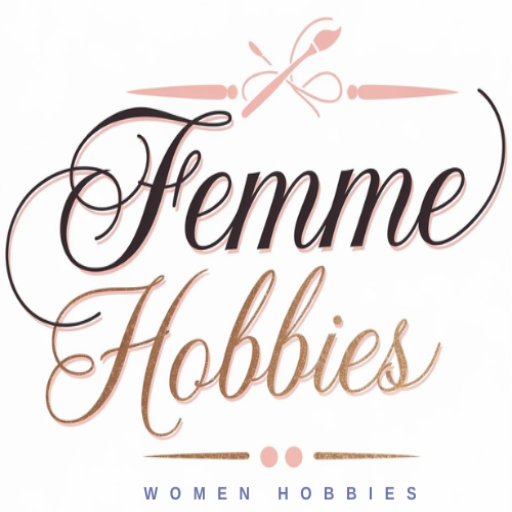After researching adult classes across major cities like Chicago, speaking with hobbyists, and even trying a few courses myself, I realized one thing: hobbies aren’t just for passing time, they are lifelines for purpose, wellness, and joy. Whether you are Googling adult classes near me hobbies, looking for a fun course to take, or curious about cooking classes near me, there’s something magical about learning in adulthood. This article isn’t just a list, it’s a guide built from real-life stories, tested experiences, and suggestions to help you get started wherever you are.
🔍 Find Hobby Classes Near You
Explore local workshops and studios. Enter your city to see the types of classes available in your area.
Why Adults Need Hobbies More Than Ever
After her kids left for college, my cousin joined a pottery class in Chicago, and found not just clay, but community. She’s not alone. A 2026 study from the American Journal of Lifestyle Medicine found that adults who took up a new hobby reported 34% lower cortisol levels and described their social lives as ‘significantly more fulfilling’ than non-hobbyists.
Hobbies offer three critical benefits for adult wellbeing. First, they provide mental health relief from work pressure and daily routines. Second, they create natural opportunities for social connection without the awkwardness of forced networking. Third, they spark creative growth that often splash over into other areas of life, boosting problem-solving skills and confidence.
The best part? You don’t need to be naturally talented or commit years to see benefits. Even a single session from adult classes near me hobbies can shift your perspective and introduce you to like-minded people.
How to Find Adult Hobby Classes Near You (Even in Small Cities)
Finding hobby classes for adults near you is easier than you think, even if you live outside major metropolitan areas. Start with a simple Google search using phrases like adult hobby classes near me or fun courses to take plus your city name.
Many platforms specialize in connecting adults with local classes. Meetup hosts thousands of hobby groups worldwide, from knitting circles to photography walks. Eventbrite lists workshops and one-time classes in most cities. Dabble offers unique, hands-on experiences in major cities like Chicago, while community colleges provide affordable, semester-long courses in smaller towns.
Pro Tip: Try searching adult classes near me hobbies for beginners combined with your city. This often reveals hidden gems like church basement art classes, library workshops, and community center programs that don’t advertise heavily online.
Don’t overlook unconventional venues. Many restaurants, breweries, and cafes host evening classes to draw weeknight crowds. Local craft stores often offer workshops, and some businesses provide employee classes that welcome community members.
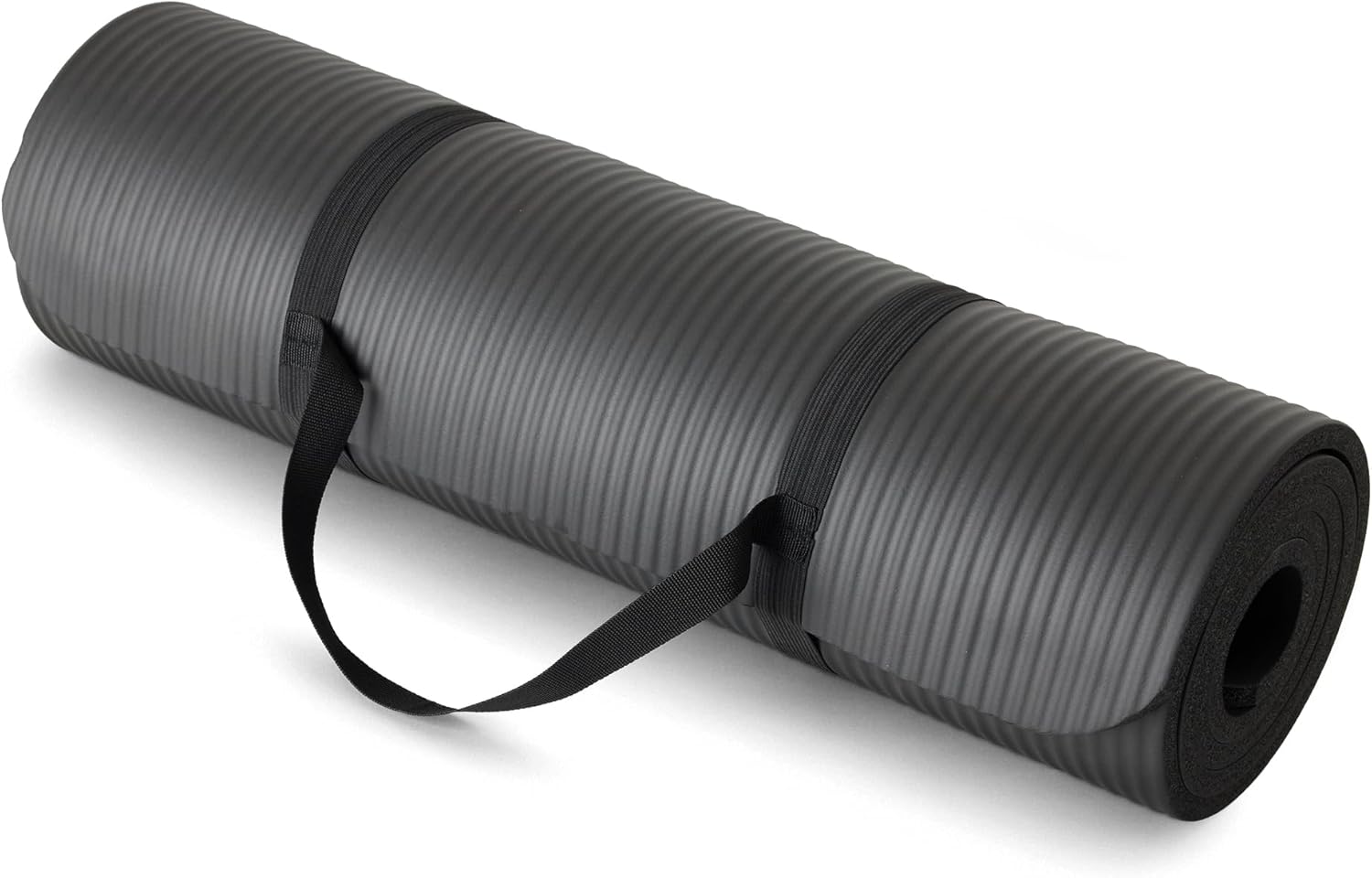

Cooking Classes Near Me: A Delicious Place to Start
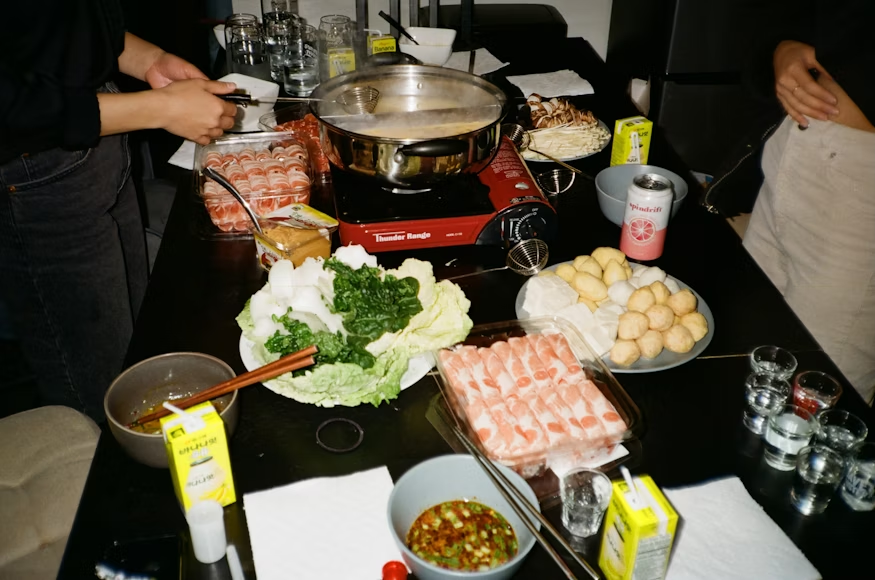
Among the most popular options in Chicago and beyond are cooking classes, because let’s face it, who doesn’t love learning while eating? These classes welcome everyone from kitchen beginners who burn toast to experienced home cooks wanting to master new techniques.
Most cooking classes focus on specific cuisines or skills. Italian pasta-making workshops teach you to create fresh linguine from scratch. Sushi classes reveal the art of perfect rice and knife skills. Baking classes might cover everything from pastry to cake decorating.
I took a dumpling class at a hobby restaurant in Chicago, and now it’s my go-to icebreaker at parties. The instructor taught us three different folding techniques, shared stories about her grandmother’s recipes, and by the end of the night, our table of strangers was planning a potluck dinner.
Look for classes at culinary schools, which often offer public workshops. Many restaurants host cooking classes during slower weekday evenings. Some grocery stores with large kitchen sections, like Whole Foods, regularly schedule hands-on cooking demonstrations.
Sip and Paint Nights: Art Meets Wine

Sip and paint events create the perfect low-pressure introduction to art. These classes typically provide all supplies, canvas, brushes, paints, and aprons—while you follow along with an instructor to create a finished painting in 2-3 hours.
The beauty of sip and paint lies in its relaxed atmosphere. Nobody expects museum-quality art. The wine helps ease perfectionist habits, and the guided instruction means you’ll leave with something you’re proud to hang on your wall.
Many restaurants and cafes host sip and paint nights to fill tables during typically slow periods. Search hobbies restaurant near me to find venues that combine dining with creative activities. Art studios also host these events, often with more sophisticated instruction and higher-quality supplies.
These classes work perfectly for date nights, solo creative time, or making new friends. The shared experience of creating art naturally breaks down social barriers and starts conversations.
Improv & Theater Classes for Confidence and Fun
Improv classes might sound terrifying, but they are designed to build confidence in the most supportive environment possible. The core rule, yes, and—teaches you to accept ideas and build on them rather than shutting them down.
I took a 6-week improv class to deal with work anxiety. I didn’t become an actor, but I became more fearless. The exercises taught me to think quickly, embrace mistakes as opportunities, and speak up in meetings without overthinking every word.
Most cities have comedy clubs or community theaters offering beginner-friendly improv classes. These courses typically start with simple warm-up games before progressing to short scene work. Many participants find the skills transfer directly to public speaking, job interviews, and social situations.
Theater classes extend beyond improv to include acting techniques, voice work, and even musical theater. Look for classes to take in Chicago or search for local theater companies, which often offer adult education programs beside their regular productions.
Pottery & Ceramics Studios
Working with clay offers a uniquely meditative experience. The tactile nature of pottery forces you to slow down and focus on the present moment, making it excellent stress relief after busy workdays.
Most pottery studios offer beginner wheel-throwing classes where you learn to center clay and shape basic bowls or mugs. Hand-building classes teach techniques like pinch pots and slab construction without requiring wheel skills. Many hobby classes for adults in Chicago include studios like Penguin Foot Pottery, which welcomes complete beginners.
The process takes patience, pieces must dry, get fired in the kiln, glazed, and fired again—but that anticipation becomes part of the joy. Students often describe the satisfaction of drinking coffee from a mug they made themselves as unmatched by store-bought items.
Pottery studios typically charge per class or offer monthly memberships that include clay, tools, and firing.ide all the equipment, so you can try the hobby before investing in your supplies.
Dance Classes (Not Just Zumba!)
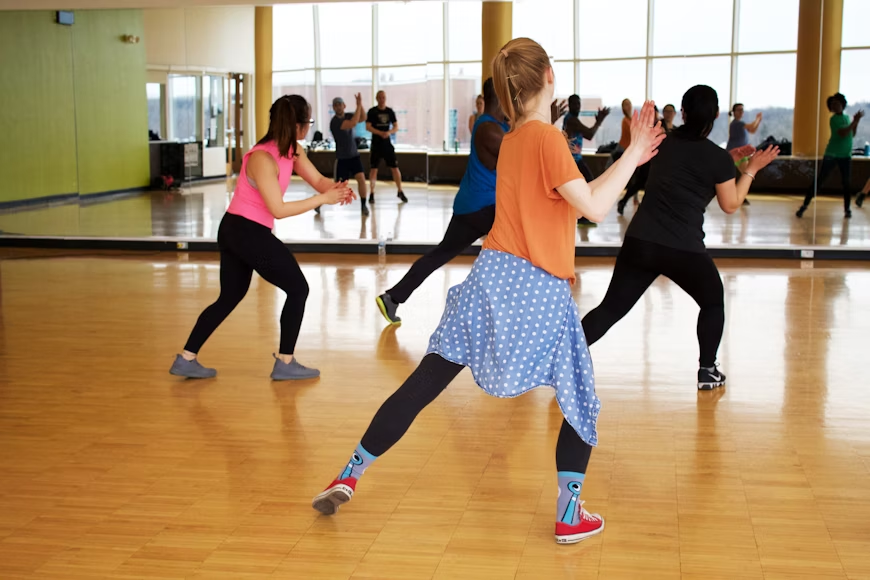
At 48, my aunt started swing dancing. She says it’s better than therapy and cheaper than the gym. Dance classes for adults have exploded beyond traditional aerobics to include ballroom, salsa, hip-hop, belly dancing, and even cultural dances like Irish step dancing.
Partner dances like swing, salsa, and ballroom automatically provide social interaction. Many studios host practice nights where students can dance with different partners and reinforce what they have learned. Solo styles like belly dancing or hip-hop focus more on personal expression and fitness.
Search for fun adult hobby classes in your area to discover the variety available. Dance studios often offer beginner-friendly intro packages or drop-in classes that don’t require long-term commitments. Community centers frequently host more affordable options, though instruction might be less intensive.
The physical benefits, improved coordination, cardiovascular health, and posture—combine with mental benefits like boosted confidence and stress relief. Plus, dancing provides an excuse to dress up and get out of the house regularly.
Dance Classes (Not Just Zumba!), online platforms like STEEZY make it easy to explore hip-hop, contemporary, salsa, and more from the comfort of your home.
Creative Writing Workshops
Creative writing workshops transform the solitary act of writing into a cooperative experience. Whether you journal privately or dream of publishing a novel, these classes provide structure, feedback, and motivation to improve your craft.
Most workshops focus on specific genres, memoir, fiction, poetry, or screenwriting—though general creative writing classes cover multiple forms. Participants typically share their work for constructive feedback, which helps develop both writing and critical thinking skills.
Many writing workshops have moved online or hybrid, expanding access beyond major cities. However, in-person classes offer unique benefits like immediate feedback and the energy of real-time discussion. Try searching adult classes near me hobbies for beginners to find local writing meetups or library-sponsored groups.
The best writing classes combine instruction with practice. You might learn about dialogue techniques one week, then write and share a scene the next. This immediate application helps solidify concepts and builds confidence.
Cheese Making or Wine Tasting Courses
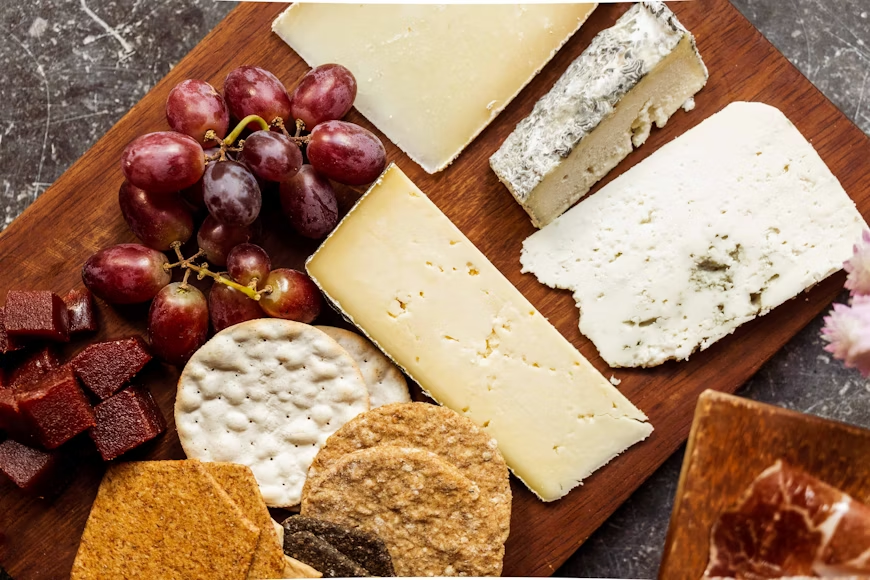
Artisanal food and drink classes combine education with indulgence. Cheese-making workshops teach you to create fresh mozzarella, ricotta, or aged varieties using traditional techniques. Wine tasting courses educate your palate while introducing you to different regions and grape varieties.
These classes often take place in gourmet restaurants, specialty food shops, or dedicated cooking schools. Search hobbies restaurant near me to find venues that offer food and drink education alongside dining experiences.
Cheese-making classes typically provide all ingredients and equipment, letting you take home your creations. You’ll learn about milk selection, cultures, aging processes, and proper storage. Wine classes might include guided tastings, food pairings, and information about wine regions and production methods.
Both hobbies can develop into serious interests or side businesses. Many participants start making cheese for friends and family, while wine knowledge enhances dining experiences and dinner party hosting.
Floral Arrangement & Gardening Workshops
After her divorce, a friend signed up for a floral course, she now runs weekend pop-ups selling arrangements! Floral design classes teach composition, color theory, and flower care while creating beautiful centerpieces, bouquets, or seasonal decorations.
These workshops often follow the calendar, featuring spring bulb arrangements, summer wildflower designs, or autumn harvest themes. Instructors typically provide all flowers and supplies, though you might need to bring your vase or container.
Gardening workshops extend the plant-based hobby outdoors. Classes might cover vegetable gardening, herb cultivation, native plant landscaping, or container gardening for apartment dwellers. Many community gardens offer seasonal workshops for both members and the public.
Both hobbies provide therapeutic benefits through connection with nature. The seasonal aspect ensures variety and gives participants something to anticipate throughout the year. Plus, flowers and garden produce make excellent gifts for friends and family.
Calligraphy and Hand Lettering
Calligraphy classes offer a peaceful counterpoint to our digital world. Learning traditional pen-and-ink lettering or modern brush lettering provides meditative focus while creating beautiful, functional art.
Modern calligraphy has evolved beyond formal wedding invitations to include greeting cards, journal lettering, and small business signage. Classes typically start with basic strokes and letter formation before progressing to words, phrases, and decorative elements.
Supply costs remain relatively low—you need pens, paper, and practice sheets, making this hobby accessible for most budgets. Art supply stores often host workshops, and many cafes offer evening calligraphy classes in relaxed settings.
The skills transfer well to other creative pursuits and can develop into a side business. Many students start by creating custom cards for friends before taking commissions for wedding stationery or small business needs.
DIY Skincare and Soap Making

Natural skincare workshops teach participants to create lotions, scrubs, bath bombs, and soaps using simple, recognizable ingredients. These classes appeal to people interested in reducing chemical exposure, saving money, or creating personalized products.
Typical workshops cover basic chemistry principles, ingredient functions, and safety procedures. You’ll learn why certain oils work better for different skin types, how to calculate proper proportions, and techniques for achieving desired textures and scents.
Classes often take place in wellness studios, craft spaces, or natural food stores. Instructors usually provide all materials and containers, letting participants take home multiple products to test and enjoy.
The hobby proves particularly rewarding for people with sensitive skin or specific preferences that are hard to find in commercial products. Many participants enjoy giving homemade skincare as gifts, knowing exactly what ingredients went into each item.
if you are interested in activities that highlight self-expression and cultural connection, explore our full list of hobbies for Black women
Digital Art or iPad Drawing Courses
I joined a local iPad art club, and my screen time finally turned into something creative. Digital art classes introduce adults to drawing and painting using tablets, styluses, and software like Procreate or Adobe Fresco.
These courses typically start with basic drawing techniques before exploring digital-specific features like layers, brushes, and special effects. Instructors often show how to create everything from realistic portraits to abstract designs or graphic illustrations.
Many classes combine in-person instruction with online resources, allowing students to practice at home between sessions. Some focus on specific styles, digital watercolor, comic illustration, or photo manipulation, while others provide a general introduction to digital art concepts.
The hobby offers several advantages over traditional art: easy corrections, unlimited color palettes, and the ability to share work instantly online. Plus, digital art skills transfer well to graphic design, social media content creation, and other practical applications.
Music Jams & Beginner Instrument Circles
Musical hobby classes extend far beyond childhood piano lessons. Adult music programs include guitar circles, ukulele groups, drum classes, and even less common instruments like handpan or kalimba.
Search hobby classes for adults near me + music to find local options. Many music stores offer group lessons that cost less than private instruction while providing social interaction. Community centers sometimes host informal jam sessions where beginners can play alongside more experienced musicians.
These classes typically provide instruments for trial purposes, letting you explore different options before purchasing. Group settings reduce performance anxiety and create built-in practice partners for continued learning outside class.
Music participation offers numerous cognitive benefits, including improved memory, stress reduction, and enhanced coordination. The social aspects help adults connect over shared musical interests, often leading to informal groups that meet regularly.
if you’re exploring different activities, you might also enjoy our full guide on hobbies for women to discover more inspiring ideas.
Volunteering as a Hobby (Classes Included)
Many volunteer programs include training classes as part of their orientation, making volunteering an educational hobby. These might include dog training for animal shelter volunteers, financial literacy for community education programs, or CPR certification for emergency response teams.
Search locally on VolunteerMatch, Idealist, or contact nonprofits directly to find opportunities with substantial training components. Museums often train docents extensively in art history or local history. Environmental groups teach volunteers about native plants, water testing, or wildlife monitoring.
The dual benefit of learning new skills while contributing to your community makes volunteer training particularly rewarding. Many volunteers report that their training opened career opportunities or introduced them to lifelong interests they never considered.
Plus, volunteer work automatically connects you with like-minded people who share your values and interests in making a positive impact.
Why These Hobbies Matter
These adult classes near me hobbies offer more than entertainment, they provide essential mental health benefits, social connections, and creative outlets that many adults lack. Regular creative activity reduces cortisol levels, improves sleep quality, and builds strength against daily stressors.
The social aspects prove equally important. Adult friendships often revolve around work or family responsibility, leaving little room for relationships based purely on shared interests and enjoyment. Hobby classes create natural opportunities to meet people outside your usual social circles.
Many participants discover hidden talents or develop serious interests they never imagined. The accountant who starts pottery might launch a small ceramics business. The shy office worker who tries improv might gain confidence that transforms their career. The recent retiree who joins a cooking class might discover a passion for food that fills their newfound free time.
If you are exploring adult classes near me hobbies, pick something that sparks your curiosity. You don’t have to master something on day one, just enjoy the journey. Every hobby starts with curiosity. Let yours guide the way. The best that happens might change your life.
Adult classes can be a great way to learn something new, especially for women in their 40s who are ready to try fresh experiences. Check out our list of hobbies for women in their 40s to get inspired.
Frequently Asked Questions adult classes near me hobbies
Search hobby classes for adults Chicago or Chicago classes for adults online. Check community colleges, art studios, cooking schools, and community centers. Platforms like Meetup, Eventbrite, and Dabble list many local options.
Yes, research shows creative hobbies reduce stress by 31% and improve sleep quality. They provide mental stimulation, social connection, and a sense of accomplishment that benefits overall well-being.
Most adult hobby classes welcome complete beginners. Search adult classes near me hobbies for beginners to find specifically beginner-friendly options. Instructors expect mixed skill levels and design classes accordingly.
Popular options include cooking classes, pottery, dance, and sip-and-paint events. Search fun courses to take plus your city name, or try classes to take in Chicago if you’re in that area. Community colleges often offer diverse, affordable options.
